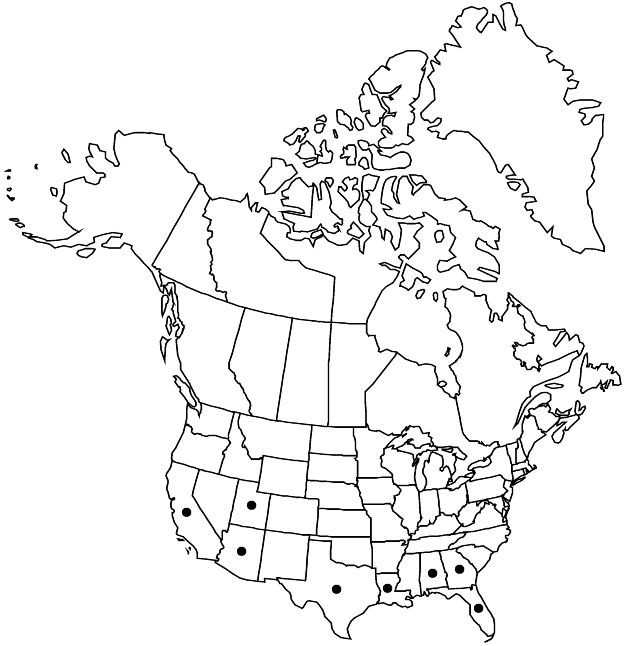Ziziphus jujuba
Gard. Dict. ed. 8, Ziziphus no. 1. 1768.
Shrubs or small trees, 2–12 m; secondary branches reddish, glabrescent, not thorn-tipped, axillary thorns absent; stipular spines usually present, straight or curving, 15–40 mm, solitary or paired, sometimes absent. Leaves deciduous, alternate; blade green abaxially, darker green and glossy adaxially, ovate to ovatelanceolate or elliptic-oblong, 3–6 cm, coriaceous, base oblique, margins crenate-serrate, apex usually obtuse to rounded, rarely acute, surfaces glabrous; 3-veined from base. Inflorescences cymes, 2–8-flowered, or rarely flowers solitary. Flowers: hypanthium and sepals yellow-green, petals pale-yellow. Drupes ripening through yellow-green to dark red or reddish purple, ellipsoid to narrowly ovoid, 15–20 (–30) mm. 2n = 24, 36, 48, 60, 72, 96.
Phenology: Flowering Mar–May.
Habitat: Old home and ranch sites, fencerows, fields, pastures, roadsides, weedy riparian woods, alluvial slopes.
Elevation: 50–700 m.
Distribution

Introduced; Ala., Ariz., Calif., Fla., Ga., La., Tex., Utah, Eurasia
Discussion
The fruits of Ziziphus jujuba have a datelike taste and are eaten fresh, dried, candied, or preserved. Hundreds of cultivars have been developed in China. The spineless var. inermis (Bunge) Rehder sometimes is identified as a cultivar.
The species was first introduced to North America in 1837 and has spread widely. It is not always clear whether it is naturalized or persisting from earlier plantings.
The name Ziziphus zizyphus (Linnaeus) H. Karsten, sometimes used for this species, is a tautonym and therefore illegitimate.
Selected References
None.